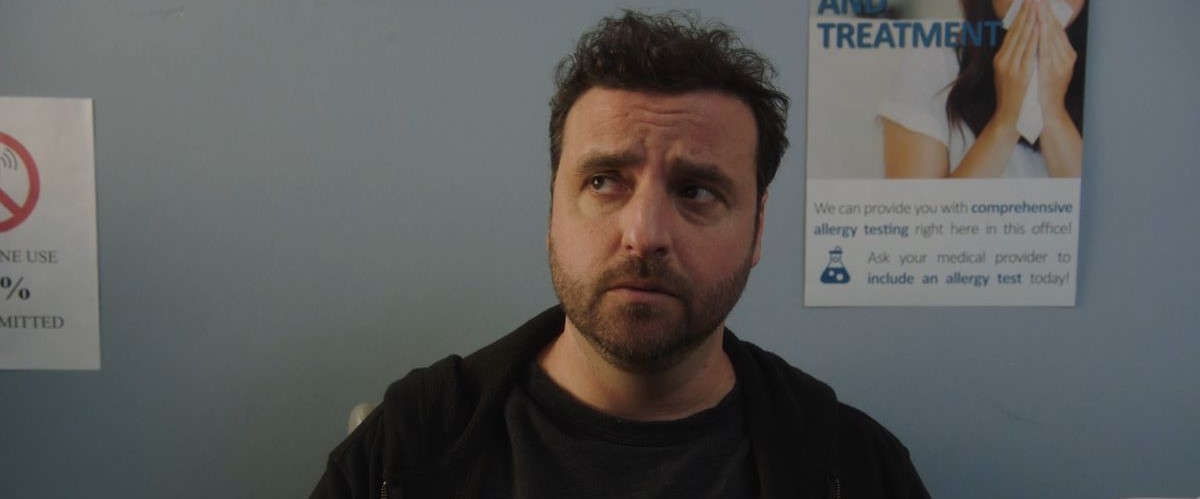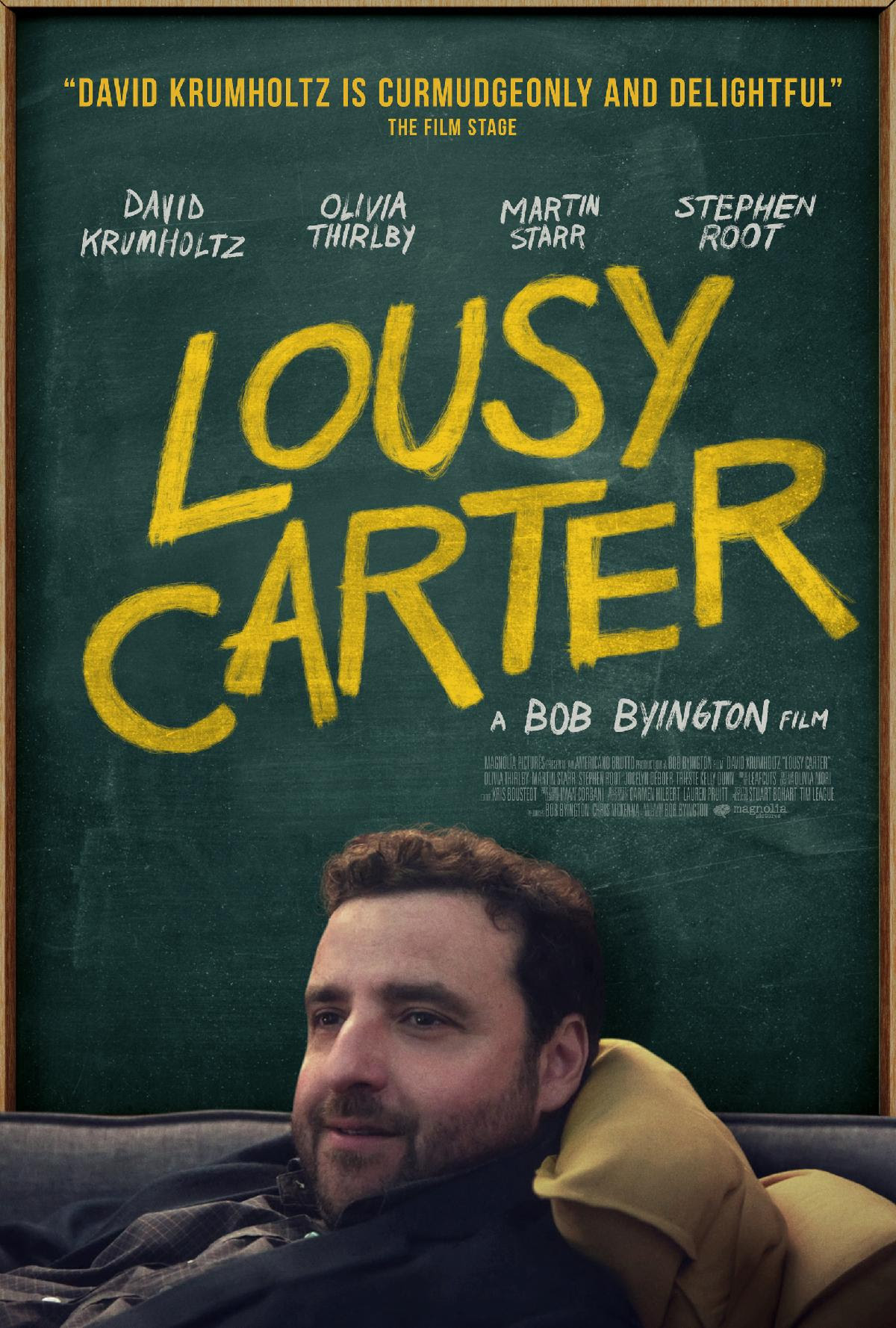Austin-based filmmaker Bob Byington never takes the easy road, even when he’s telling the stories about the same middle-aged sadsacks who’ve populated every indie dramedy under the sun. They’re mumblecore movies, but not really, mostly because they feel a lot more deliberate and snakier than the label tends to imply; he practically dares you to stare into the abyss of tedium that surrounds his often unlikable characters. That’s certainly true with his latest, the short but by no means breezy “Lousy Carter,” which asks the question: “What if a man’s terminal diagnosis just turns him into more of a loser?”
The loser in question is “Lousy” Carter (David Krumholtz), a schlubby, narcissistic literature professor who suffers from an acute case of gifted-kid syndrome: In his youth, he was celebrated for his artistic talents, which just kept the prodigy from actually evolving. Add to that a disapproving, critical artist mother (Mona Lee Fultz) whose instability drove a wedge between him and his sister (Trieste Kelly Dunn), and you make for a deeply smart man who does little with those brains beside judge others for not having them. Instead, he whiles away his days snapping at those few students who deign to hear him blather on about F. Scott Fitzgerald and Nabokov, while sleeping with the wife (Jocelyn DeBoer) of his Russian-lit colleague (Martin Starr). At all times, he wears the classic depression uniform of blazer, t-shirt, baggy jeans. Sometimes he swaps it out for a hoodie.
But when a similarly disaffected physician slaps him with a terminal diagnosis and a six-month prognosis, Lousy does the opposite of what most protagonists would do when suddenly facing their own mortality: nothing. It’s here that “Lousy Carter” zeroes in on its most interesting, deadpan ideas, as Byington and Krumholtz delight in zagging where most aspiration movies about the finite nature of life zig. Think the mirror image of Kurosawa’s “Ikiru,” where a man finds out he’s dying soon and instead chooses to turn his life around: Instead, Lousy takes it as even further license to chase his vices, refusing to tell anyone else and carrying on with his unambitious life. He screws his best friend’s wife with even greater relish, and even turns his eye to the young lit student (Luxy Banner’s sardonic, Lone Star-swigging Gail) who deigns to pay attention to him. She seems less interested in him than bemused, a kind of anti-Lolita who views him as a miserable experiment, to see how much trouble she can get him in.
This tightrope act rests squarely on Krumholtz’s shrugged shoulders, “Lousy Carter” a suitably caustic follow-up to his standout role in “Oppenheimer,” where he plays the closest thing ol’ Oppy has to Jiminy Cricket. His Lousy has no such moral compunctions, Krumholtz shuffling from scene to scene (courtesy of Byington’s disorienting, almost dreamlike editing) with all the resignation of a Death row inmate who just wants to get it all over with. It’s a terrific performance, one that speaks volumes even as it explores the acute limits of Lousy’s emotional intelligence. “You’ve diminished over the years,” Starr’s colleague tells him bluntly, “You’re a version [of yourself].” He’s not wrong, as Byington is all too eager to show us;
Granted, such ambitious swings make “Lousy Carter” a hard pill to swallow at times, even for its brisk 80-minute runtime. The homespun, DIY indie aesthetic matches Lousy’s own lack of ambition fittingly, but leads to some poorly-executed visual gags the handheld vibe just can’t capture. (The twee, tweedy chill-hop score by leafcuts constantly evokes the feeling of waiting for a YouTube video essay to finish.) We view the world through Lousy’s own two-dimensional assessment of it, but that has the effect of making everyone around him feel similarly threadbare. After all, Lousy barely cares to know anything about them. Why should we?
“Lousy Carter,” at its best, feels like a cruel joke on its own protagonist, the kind of guy so convinced of his own genius he doesn’t want to mess it up by actually putting himself out there. It’s a wonderful challenge for Krumholtz, who plumbs depths of sardonic despair we haven’t seen since Paul Giamatti in “American Splendor.” It takes guts to play a guy so unlikable and bored that a medical death sentence feels like quiet relief. Like the authors he admires, Lousy is a “museum piece,” something to be admired for his context but completely purposeless to those around him. The bravest thing Byington does with his film is nod in agreement.




















